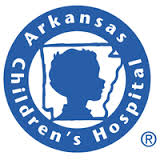The Use of Psychomotor Vigilance Testing in the Assessment of Pediatric Obstructive Sleep Apnea
| Status: | Completed |
|---|---|
| Conditions: | Insomnia Sleep Studies, Pulmonary |
| Therapuetic Areas: | Psychiatry / Psychology, Pulmonary / Respiratory Diseases |
| Healthy: | No |
| Age Range: | 6 - 18 |
| Updated: | 4/4/2019 |
| Start Date: | May 2010 |
| End Date: | September 2011 |
Obstructive sleep apnea results in decreased attentiveness and response times in patients.
The objective of this study is to quantify these consequences in pediatric OSA patients using
an already established tool for examining the results of sleep deprivation and fragmentation:
psychomotor vigilance testing. PVT has been used in children, but has not been studied in
pediatric OSA patients. This study aims to employ PVT along the normal course of diagnosis
and treatment of pediatric OSA patients in our clinical practice at Arkansas Children's
Hospital. The investigators hypothesize that pediatric OSA patients will exhibit decreased
PVT scoring when compared to children without OSA, and that PVT can be used to diagnose and
monitor treatment outcomes in these patients.
The objective of this study is to quantify these consequences in pediatric OSA patients using
an already established tool for examining the results of sleep deprivation and fragmentation:
psychomotor vigilance testing. PVT has been used in children, but has not been studied in
pediatric OSA patients. This study aims to employ PVT along the normal course of diagnosis
and treatment of pediatric OSA patients in our clinical practice at Arkansas Children's
Hospital. The investigators hypothesize that pediatric OSA patients will exhibit decreased
PVT scoring when compared to children without OSA, and that PVT can be used to diagnose and
monitor treatment outcomes in these patients.
Inclusion Criteria:
- Healthy pediatric patients ages 6-18 years old
- with symptoms of OSA (snoring, pauses in sleep breathing, restless sleep, frequent
arousals, excellive daytime sleepiness, morning headaches)
- with physical exam findings consistent with adenotonsillar hypertrophy
- those identified as good candidates for adenotonsillectomy
- who are to undergo a polysomnogram as part of their preoperative work-up
Exclusion Criteria:
- History of attention deficit disorder, developmental delay, or mental retardation
- Children taking any neurotropic medications (including antiepileptics,
antidepressives, and stimulants)
- Children previously treated for OSA (surgically or medically)
- Children with significant comorbidities including other sleep-related disorders
We found this trial at
1
site
Arkansas Children's Hospital Arkansas Children's Hospital (ACH) is the only pediatric medical center in Arkansas...
Click here to add this to my saved trials
